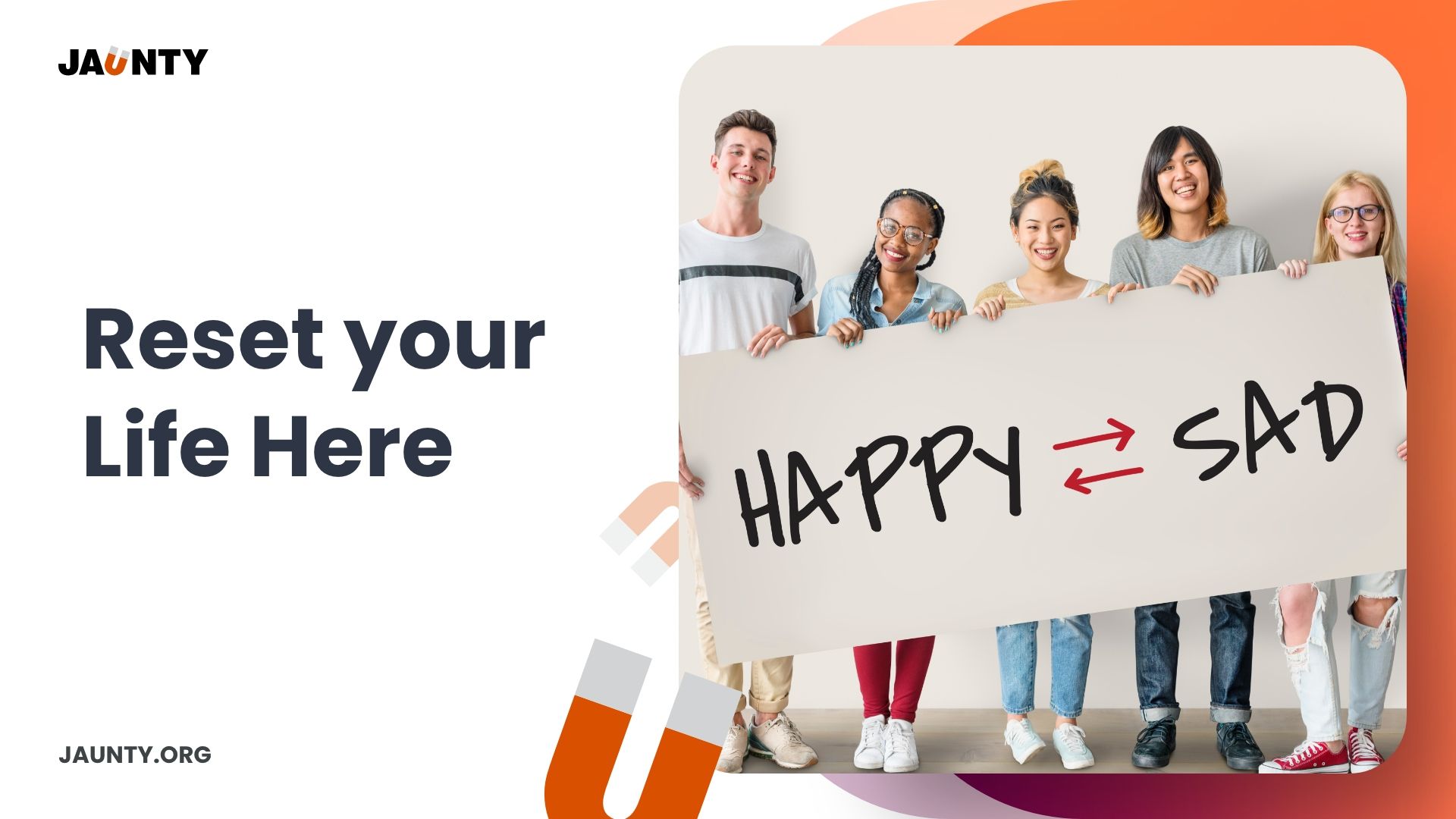If you could hit a random life reset button, would you?
Imagine entering a room with a red button under glass case. If you press the button, you’d randomly be swapped out for a new body in a different environment. You’re still you, but in a different, adult body and with a totally different life. Would you risk your life for a new one? Maybe you’d wind up in a fitter body, with a better paying job, and a hilarious, witty boyfriend or girlfriend.
Would you press the button? I think most people would not. We might regret some of our past choices or wonder what our life might look like if we’d made different decisions.
But our decisions and the experiences we’ve had have made us who we are.
Pressing the button means suddenly having a wildly different set of circumstances that we might not understand and have no control over. Most of us would rather make the most of the hand life has dealt us, rather than swap out our cards for random new ones from the deck.
The brain tends to make us believe that everything works out for the best. When a relationship doesn’t work out, or we didn’t get a job we really wanted, it can be painful and it’s easy to wish things had turned out differently. But with enough time, our perspective shifts, and we create what’s called synthetic happiness, the brain’s response when we don’t get what we want.
Dan Gilbert, psychologist and author of Stumbling on Happiness, says synthetic happiness is just as real and enduring as real happiness (which is what we feel when we actually get what we want). Basically, because of the way our brains work, we’re grateful that things happened the way they did. I know I wouldn’t be where I am today if things had played out differently.
Then part of me wonders if I would feel the exact same thing if I had gotten that job or I was still in that relationship. Am I just rationalizing that everything has worked out? Maybe the result is less important than how we feel about it.
I believe three things are most important to our well-being: genetics, behaviors, and environment. If I was to push that reset button I’d hope for a healthy body with good genes for longevity. Secondly, I’d hope for an even lower pleasure threshold, meaning it’d be easier for me to feel joy. Lastly, I’d hope for even better good looks. (Because why the hell not?)
In reality there are things we can change and things we can’t. For now at least, our genes are our genes. We can choose to take better care of our body, eating better, exercising more, drinking less, getting better sleep. This stuff all makes a huge difference to our physical and mental well-being. And we’re working within parameters set by our genetic make-up.
We can totally change our behaviors and environment.
At Jaunty, the school for social intelligence, we teach people how to become more aware of their behaviors, explore new ways of interacting with others and build meaningful connections. We can overcome our fears and social anxieties.
We can learn how to approach strangers, build rapport, play with humor, and feel confident in any social situation. We can learn to be more assertive.
We can also change our environment. You don’t have to move across the country to change your environment. Instead you can create meaningful change where you are, by deliberately choosing your circle of friends and community, and being more thoughtful in who you spend time with. Do you have people in your life who are bringing you down? Are your friends, friends of convenience rather than friends of choice. With greater social skills you can learn to connect with whoever you want.
It’s fun to imagine what it’d be like if I hit the reset button and that new body felt really comfortable and was way happier than mine. But what if I hit the button and I ended up with misery? I’d love to see what it feels like to be someone else, even for a few minutes. For now, I’m staying away from the red button and am working on optimizing my life and making the most of what I have.



